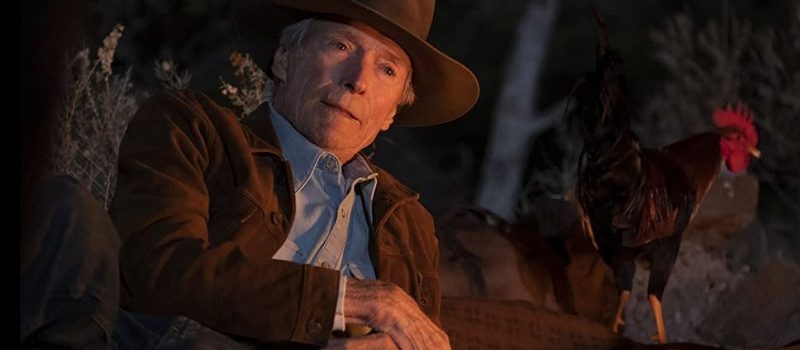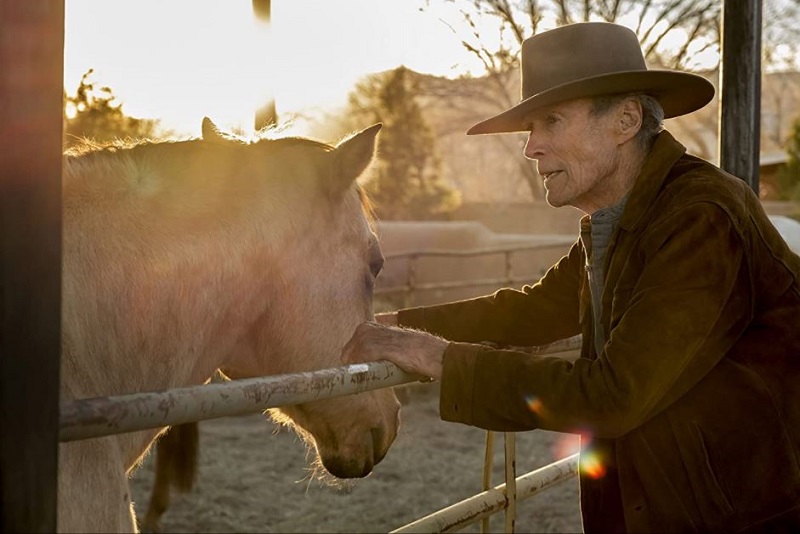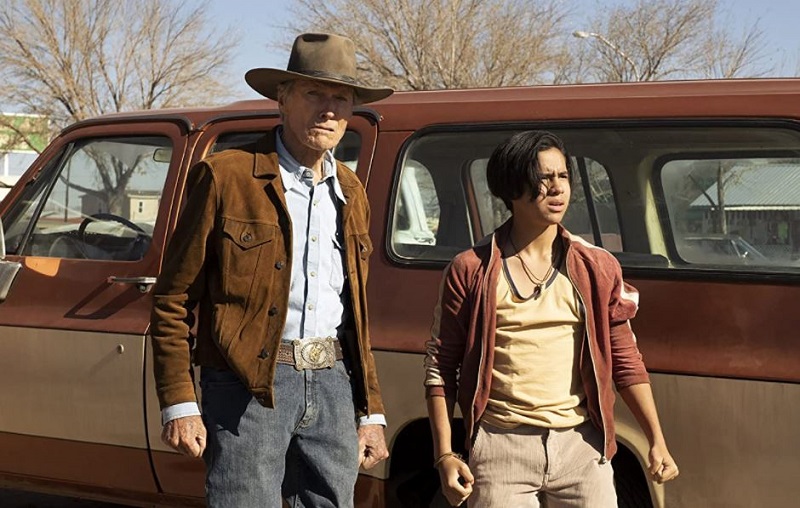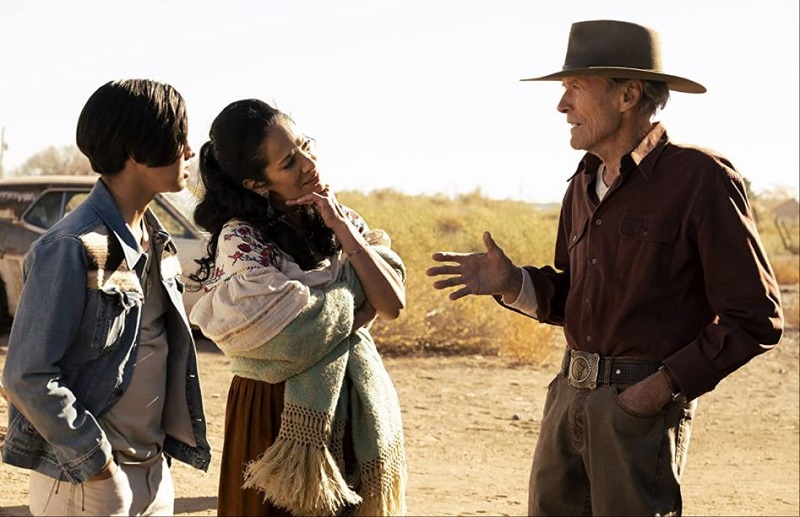Clint Eastwood is 91-years-old and tackles a big-time Warner Bros. movie story about a veteran Texas cowboy charged with bringing a missing half-American/half-Mexican teen back to her father (Dwight Yoakum). Heck, we didn’t let my 90-year-old grandpa handle the remote control! But Eastwood shows that he can still helm a story, especially this tale. Cry Macho is a softer tale of western masculinity in a 21st-century world for a generation whose time has passed and one whose mark is still yet to be determined.
Eastwood’s Mike Milo is a former horse breeder and washed-up rodeo star who appears to not have too much left in the tank. But when a pleading father begs to see his son who was taken from him by his Mexican mother Leta (a fiercely commanding Fernanda Urrejola) years prior.
Turns out Rafo (Eduardo Minett) is a pain in his mother’s side and is more interested in cockfighting with his beloved Macho than anything else. That’s where Milo finds him and word that his father wants him back after all these years provide a spark in his eyes that has the duo embarking on the long journey from Mexico City to Texas. Thing is, his mother will not give his father one inch on any issue, much less their child. She has men with guns throughout the geography from her home to the border. These provide constant obstacles for Rafo and Milo, but they don’t seem to pack the punch that they need to convey the idea that this is literally life and death.
Cry Macho is a quiet story and one about the relationship between men of different generations, backgrounds, pasts, and futures. In the hands of the veteran storyteller in Eastwood, it is even paced and sadly that may be its problem. There needs to be ebbs and flows and this is a steady river that barely has any rapids and for the most part, needs a paddle to get anywhere. There are bumps in the road, but they are treated with the urgency of a mosquito bite instead of one from a viper.
The relationship between Milo and Rafo is one that is somewhat predictable. They are reluctant travelers who are thrown together by happenstance and their connection is nonexistence. But over the course of their journey, various elements occur that bring the two men of different generations to find a common ground. Although predictable and involving tropes we’re seen a million times, it is touching and one worthy of watching unfold. Eastwood plays Mike as a man who keenly knows he has well past his prime, but as someone who firmly believes that there are still days ahead. Rafo, on the other hand, in a typical teenage manner, only sees the five minutes in front of him, and through his almost mentorship by Mike, he begins to see a different view of life and its travails.
The “bad guys” are caricatures at best in Nick Schenk and N. Richard Nash script that are never given meaning beyond the fact that they are chasing Milo and Rafo and have guns. The ex-wife Urrejola isn’t given much else to work with and she does what she can with the part, including driving into stereotypes that sadly do not even make any sense.
Even though it is something you can see coming a mile away, watching Eastwood and Minett get closer and find an emotional connection and mentorship for a boy who has never had a father except the revolving door of men who make their way through her bedroom, it is a warm and endearing relationship to witness.
There is a relationship that develops between Milo and a Mexican woman who gives them a place to hid while they work on their vehicle. Marta (Natalia Traven) runs a local restaurant, and the widow takes an interest in the widower that is Mike. Their development relationship, again, is predictable, but in the end something rather sweet. After all, when was the last time you saw an age-appropriate relationship involving a 91-year-old protagonist?
This may be Eastwood’s last picture, although I wouldn’t put anything past him. He shows his age in Cry Macho for sure, but then again—that is the part. His commend as a helmer is unquestioned, even if the film lacks any kind of punch that it could possibly have had. It is a journey that lacks any kind of urgency, even if the subject matter feels like it should have had it front and center.
Grade: C




